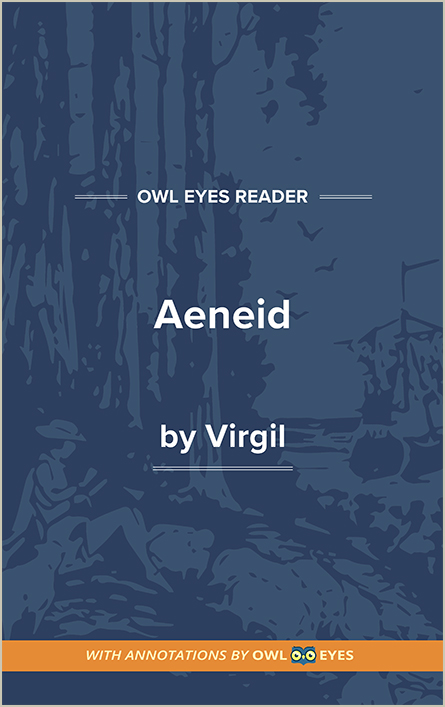Analysis Pages
Mythology in Aeneid
Mythology Examples in Aeneid:
Book I
🔒"Leda's..." See in text (Book I)
"Dardan..." See in text (Book I)
"Latona..." See in text (Book I)
"Penthisilea..." See in text (Book I)
"stern goddess..." See in text (Book I)
"May view the turrets of new Carthage rise..." See in text (Book I)
"Sichaeus..." See in text (Book I)
"Phoenician Dido rules the growing state..." See in text (Book I)
"chaste Diana's..." See in text (Book I)
"Harpalyce..." See in text (Book I)
"Cyllenius..." See in text (Book I)
"Fury..." See in text (Book I)
"Janus..." See in text (Book I)
"Quirinus..." See in text (Book I)
"Ilia the fair, a priestess and a queen, Who, full of Mars..." See in text (Book I)
"Alba Longa..." See in text (Book I)
"Cyclops..." See in text (Book I)
"Scylla..." See in text (Book I)
"Nereids..." See in text (Book I)
"he skims the liquid plains, High on his chariot..." See in text (Book I)
"Cymothoe, Triton..." See in text (Book I)
"imperial Neptune..." See in text (Book I)
"Aeolus..." See in text (Book I)
"Pallas..." See in text (Book I)
"Electra's..." See in text (Book I)
"on ravish'd Ganymed..." See in text (Book I)

